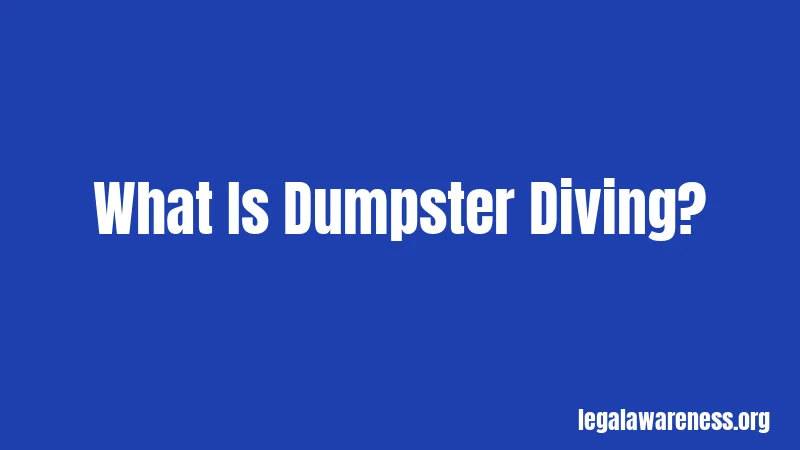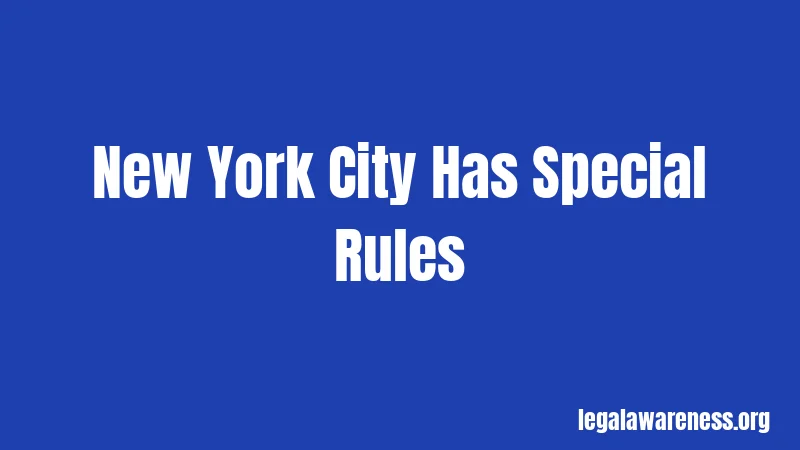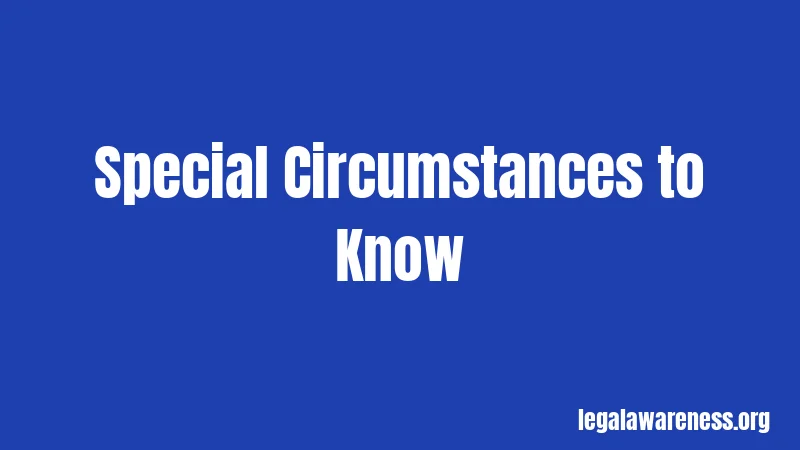Dumpster Diving Laws in New York (2026): Rules You Should Know
Most people think dumpster diving is totally illegal. Like, you’ll get arrested for going through someone’s trash, right? Actually, it’s more complicated than that. In New York, dumpster diving exists in a weird gray area. The rules depend on where you are, what you’re taking, and how you’re doing it. Let’s break down exactly what you need to know.
Here’s the deal. New York doesn’t have a specific law that says “dumpster diving is illegal.” But that doesn’t mean you can just dive into any dumpster you see. There are trespassing laws, local ordinances, and special rules in New York City that can land you in hot water. Stay with me here.
What Is Dumpster Diving?

Dumpster diving is when you search through trash bins, dumpsters, or garbage bags looking for items. Some people do it to find food that’s still good. Others hunt for furniture, electronics, or clothing. Pretty straightforward.
The practice has been around forever. But it got a legal boost back in 1988. The Supreme Court ruled in California v. Greenwood that once you put trash on the curb for pickup, you’ve basically abandoned it. No more privacy rights. Anyone can look through it.
That case changed everything for dumpster divers across the country. It made the practice technically legal at the federal level. But state and local laws? That’s where things get tricky.
Basic Dumpster Diving Rules in New York
The State Law Situation
New York State has no law specifically banning dumpster diving. Zero. If you’re thinking this sounds too good to be true, you’re onto something. The lack of a state ban doesn’t mean you’re in the clear everywhere.
Wondering if this applies to you? It does if you’re anywhere in New York State. But each city and town can make its own rules. Some places are totally cool with it. Others will fine you or even arrest you.
When It’s Legal
You’re generally safe to dumpster dive when the trash meets these conditions. The dumpster is on public property like a curb or sidewalk. The trash has been placed out for collection. There are no “No Trespassing” signs posted. You’re not breaking into locked areas or climbing fences.
Think of it like a traffic ticket situation. If you follow the rules of the road, you’re fine. Break them, and you face consequences.
The Trespassing Problem
Here’s where most people mess up. Trespassing laws still apply to dumpster divers. If a dumpster sits on private property, you need permission to access it. Period.
Hold on, this part is important. Most dumpsters behind stores, restaurants, or businesses are on private property. That parking lot? Private property. The alley behind the shopping center? Usually private property. Going into these areas without permission is trespassing.
New York Penal Law takes trespassing seriously. You could face criminal charges if you’re caught. The property owner can call the police. You might get arrested even if you weren’t stealing anything.
New York City Has Special Rules

Okay, pause. Read this carefully. New York City is different from the rest of the state. The city has its own sanitation codes that make certain types of dumpster diving illegal.
The Recyclables Rule
In NYC, it’s actually illegal to remove recyclables from the curb once they’ve been put out for collection. The Department of Sanitation considers this stealing from the city. Seriously.
The law says you can’t “disturb, remove, or transport by motor vehicle any amount of recyclable material” that’s been placed out for DSNY pickup. This includes bottles, cans, paper, cardboard, and more. The city treats recyclable scavengers as criminals.
Why does the city care so much? Money. The city sells recyclables and uses that revenue for sanitation programs. When people take recyclables, the city loses income.
Regular Trash in NYC
What about regular garbage in New York City? The rules are less clear. Technically, taking regular trash from the curb isn’t explicitly illegal. But you need to be careful.
The sanitation code says you can’t disturb garbage containers or their contents. If you make a mess, create a hazard, or damage property, you’re breaking the law. Fines can range from $100 to $500 per violation.
Most people don’t realize how strict these laws are. The DSNY has enforcement officers who patrol neighborhoods. They can and will issue tickets.
What Happens If You Get Caught?
Let’s talk about the penalties. They vary depending on what law you break and where you are.
Trespassing Charges
Trespassing in New York can be a violation or a crime. Criminal trespass in the third degree is a class B misdemeanor. That means you could face up to 90 days in jail and a fine up to $500.
Less severe than a felony, but still no joke. A misdemeanor stays on your record. It can affect job applications, housing, and more.
Local Ordinances
Different cities have different penalties. Buffalo might fine you $50. Albany could charge you $200. It depends on the local rules.
Some towns barely enforce these laws. Others crack down hard. You won’t know until you check your specific area.
NYC Specific Penalties
In New York City, violating sanitation codes brings fines. First offense for disturbing recyclables? Usually $100. Second offense jumps to $200. Third offense hits $400.
Persistent violators face even higher penalties. If you get four violations within six months, you’re classified as a persistent violator. That brings a $400 fine for each additional violation.
Special Circumstances to Know

Not all dumpster diving situations are the same. Here are some scenarios that have different rules.
Diving at Night
Dumpster diving at night is totally legal in New York State. The same rules apply whether it’s noon or midnight. But here’s the thing. Diving at night in residential areas can attract more attention.
Neighbors might call the police thinking you’re breaking in. Cops respond to these calls. Even if you’re doing nothing illegal, you’ll have to explain yourself. Not fun.
Personally, I think early morning works better than late night. Less suspicious. Fewer people around.
College Towns and Move-Out Days
College areas are goldmine times for dumpster divers. When students move out, they dump tons of good stuff. Furniture, electronics, clothes, kitchen items.
These items are usually placed on curbs or in designated areas. Public property. Fair game. Just don’t trespass into apartment complex dumpsters that require key card access.
Food from Grocery Stores
Many divers look for food behind grocery stores and bakeries. The food is often perfectly fine. Maybe the package is dented. Maybe it’s a day past the sell-by date.
But remember, those dumpsters are usually on private property. You need permission from the store. Some stores actually welcome it. They’d rather see food go to someone than to a landfill. Others will call the police immediately.
How to Dumpster Dive Safely and Legally
Here’s what you need to do if you want to dive without legal trouble.
Check Your Local Laws First
Before you dive anywhere, research your city’s specific ordinances. Call city hall if you need to. Check the municipal website. Look up local sanitation codes.
This one step can save you from fines and arrests. Honestly, most people skip this part. Don’t be most people.
Stick to Public Areas
Your safest bet is trash that’s clearly on public property. Curbs, sidewalks, public parks. If the trash is there for city pickup, you’re probably okay.
Never climb fences. Don’t break locks. Don’t enter gated areas. The moment you do any of these things, you’re trespassing.
Get Permission When Possible
Sound complicated? It’s actually not. Just ask. If you want to dive behind a specific store, talk to the manager. Explain what you’re doing.
Many businesses say yes. They appreciate the reduced waste. Some even set aside good items for regular divers. The worst they can say is no.
Respect the Area
Clean up after yourself. Don’t scatter trash everywhere. Don’t block sidewalks or driveways. Be quiet and respectful, especially in residential areas.
You’re not alone, this confuses a lot of people. Being legal doesn’t mean being obnoxious. Good behavior keeps dumpster diving tolerated in areas where it might otherwise get banned.
Bring Safety Gear
Always wear gloves. Thick ones. Dumpsters contain broken glass, sharp metal, old food, and who knows what else. Wear sturdy shoes with thick soles. Bring a flashlight for nighttime diving.
Consider bringing hand sanitizer and a first aid kit. Injuries happen. Be prepared.
Know When to Walk Away
If someone asks you to leave, leave. Don’t argue. Don’t try to explain your rights. Just go. It’s not worth the confrontation.
Police officers might not understand the nuances of dumpster diving law. Even if you’re technically legal, arguing with a cop on the street rarely ends well. Be polite, cooperate, and move on.
Where to Find the Best Spots
New York has tons of potential diving locations. Here’s where people have the most success.
Retail Areas
Shopping districts often have great finds. Retail stores throw out returned items, overstock, and display models. These are usually in good condition.
Target these areas during business hours when it’s clearly public space. Avoid after-hours diving when you might look suspicious.
College Campuses
We mentioned this before, but it’s worth repeating. College areas are incredible during move-out season. May and June are peak months.
Students throw away everything. Textbooks, mini-fridges, futons, desks. All of it ends up on the curb. Get there early for the best selection.
Residential Neighborhoods on Trash Day
Wealthy neighborhoods throw away amazing stuff. Furniture, electronics, designer clothes. Check the trash schedule and arrive early on pickup day.
Wait, it gets better. Many people in these areas put items on the curb with “free” signs. Not even diving at that point. Just taking free stuff.
Commercial Districts
Business areas can have useful finds too. Office furniture, supplies, equipment. But remember, most commercial dumpsters are on private property. You’ll need permission.
Common Questions People Ask
Can I get arrested for dumpster diving in New York?
Yes, you can get arrested if you’re trespassing on private property. You can also face charges if you’re violating local ordinances. But if you’re diving legally in public areas, arrest is unlikely. The key is knowing where you’re allowed to be.
Is it illegal to take recyclables from the curb in NYC?
Yes, it’s illegal in New York City specifically. The sanitation code prohibits removing recyclables once they’re placed out for collection. This rule doesn’t apply to the rest of New York State, just NYC. Violating it can result in fines starting at $100.
Do I need permission to dumpster dive behind a store?
If the dumpster is on private property, yes, you legally need permission. Most store dumpsters are in parking lots or back alleys owned by the business. Going there without permission is trespassing. Always ask the manager or owner first.
What should I do if someone tells me to stop diving?
Leave immediately. Whether it’s a property owner, store employee, or police officer, just comply. You can explain your perspective calmly, but don’t argue. Getting into a confrontation isn’t worth it. There are plenty of other places to dive.
Can businesses lock their dumpsters?
Absolutely. Businesses can lock dumpsters, put them in caged areas, or post “No Trespassing” signs. These are all legal ways to prevent dumpster diving. Never break locks or climb fences to access locked dumpsters. That’s definitely illegal and could result in criminal charges.
Final Thoughts
Now you know the basics. Dumpster diving in New York isn’t illegal across the board. But it’s not a free-for-all either. The state has no specific ban. Cities can make their own rules. New York City has strict limits on taking recyclables.
Your best approach is simple. Research your local laws. Stick to public property. Get permission for private property. Respect the area and clean up after yourself. Be safe and bring proper gear.
When in doubt, ask permission or walk away. There’s always another dumpster, another neighborhood, another day. Don’t risk arrest or fines over a single dive.
Stay informed, stay safe, and when in doubt, look it up or ask a lawyer. Happy diving.
References
- New York State Court System – Legal Research FAQ on Dumpster Diving
- California v. Greenwood, 486 U.S. 35 (1988) – Supreme Court Decision
- New York City Department of Sanitation – Sanitation Regulations
- NYC Administrative Code Title 16 – Department of Sanitation
- New York Penal Law – Criminal Trespass Statutes
